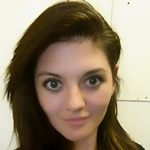
I joined the CBMA group as a PhD student in September, and we’ve already finished our cohort’s first rotation project. The time seems to have flown by!
As part of the CBMA’s PhD cohort (funded by the Carlota Palmer Scholarship and Dr Neil Cross), we’re working through three problem-based rotations lasting six weeks each ending with a final report and a 45 minute joint presentation to both the CBMA and the PMH. Rotations kicked off with the mathematical project – exploring the modelling of EEG data, with lectures provided by John Terry. This involved analysing EEG data, and researching appropriate mathematical models which could be used to simulate the data. Entering a maths project from a medical sciences background was at first challenging, as this involved not only learning new skills, such as mathematically simulating data, but also involved understanding how to approach a biological research question from a different perspective.
After researching the various models which could be applied to our EEG data, and considering the advantages and limitations of each, the group decided to proceed with exploring the Kuramoto model. An exciting part of working with colleagues with various backgrounds, including mathematics, physics and biology, was uncovering how all of our individual skillsets could integrate to form a greater understanding of the rotation project as a whole. This meant that although getting to grips with modelling (and higher maths in general), started as a daunting prospect, the support of CBMA colleagues and the cohort group allowed me to appreciate how these techniques could be used within my own research. Therefore, I plan to further explore how simulating data could enrich the understanding of complex biological problems faced in my PhD field.
Working within an interdisciplinary team has allowed an excellent insight into how one problem may be solved through a variety of techniques. I have already had the opportunity to improve my skills in communicating with people from a variety of scientific disciplines, and I’m sure will continue to develop this skill during the remaining rotations (in physics/imaging and human physiology).